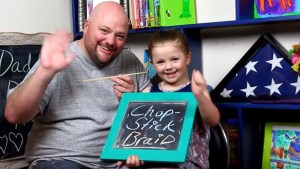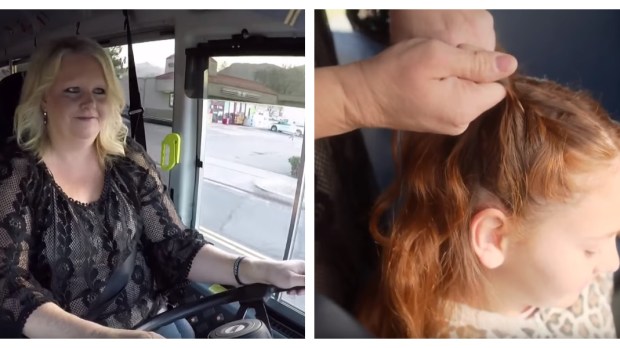Isabella Pieri is an 11-year-old girl who lives in Utah with her father and brothers; she lost her mother two years ago to an illness. The
of the Pieri family, interviewing all the protagonists. Such a huge loss has repercussions in the details of daily life: the father has taken over all the family management, including the need to comb the beautiful red hair of his daughter. He has been defeated.Isabella’s dad let go, choosing to cut the girl’s hair. Her stubborn hair has grown back, of course, thick and undisciplined. The best he could do was a simple ponytail. A little girl cares very much about her hairstyle and, without complaining to her father, Isabella found an alternative: she asked the lady who drives the school bus for help.
Sometimes she had seen her companions rely on the hands of the driver to get their hair in order before getting off the bus. Thus, Tracy Dean came on the scene, with skills obviously not limited to driving large vehicles. Knowing the girl’s story, Tracy decided to braid her every morning—and not in a quick and hasty way. Once the bus arrives in front of the school, the beauty salon begins. Isabella can show off a look every day that inspires her to hold her head high.
Does all this daily care come from a simple instinct of goodness? It’s something more. A few years ago, Mrs. Dean had a tumor, and the fear of dying had led her to wonder who would take care of her children, if she was missing. Mysteriously, that open wound in her heart prepared her for a providential encounter with the equally wounded heart of Isabella. Another mother had died, leaving her daughter in the hands of others.
The ethics of reciprocity is based on two rules: a less demanding silver rule that says: “Do not do to others what you don’t want to be done to you,” and a golden rule that’s the most precious and positive version: “Do unto others what you want them to do to you.” Maybe this is where the viral seed of the news is hidden. What do you need? What do you want done to you?
Every hair on your head is counted
Maternal instinct, children’s need for attention, and an unjust pain that needed to be consoled: these are just the main perspectives from which the news was reported, and they certainly are in the right. Yet, it is as if they stopped a step before the actual jump. Often something attracts us without full awareness of why. The story of Isabella and Tracy is not just a 2019 story; it takes us back to a time so ancient that it’s not yet measured in years.
It takes us back to the project of a Father who chose to make us the object of a love that counts every hair of our head. We are made to be loved completely by One who embraces our every detail with infinite care. We are beloved down to the last frizzy hair.
This is what we want: someone who is really looking at our every hair, not just our obvious merits or resounding failures. We want someone who doesn’t only listen to us if we make a lot of noise, but who even sees the annoying knot in our hair near our neck. Someone who can detect the smallest bit of unhealed pain hidden inside our soul. Only God can do that.
Although we aren’t able to reach the depths of love and attention that God gives, we can learn the lesson that love requires attention to the details. Love means “wasting” time to attend to the little needs of those around us, especially those who are suffering. No detail is too small. That applies to our own family members and friends, as well as to the little motherless girl on the bus, the homeless man on the street corner, the neighbor with a disability, or the elderly person in a nursing home.
When Tracy braids Isabella’s hair, or when we make a small or large gesture of love to anyone, we are lending ourselves to be the instruments of the God who loves them and us equally, and is present in them and in us. What a gift and an honor!

Read more:
The single dad who’s a master at French braids (VIDEO)

Read more:
Mourning father anonymously pays for another little girl’s birthday cake

